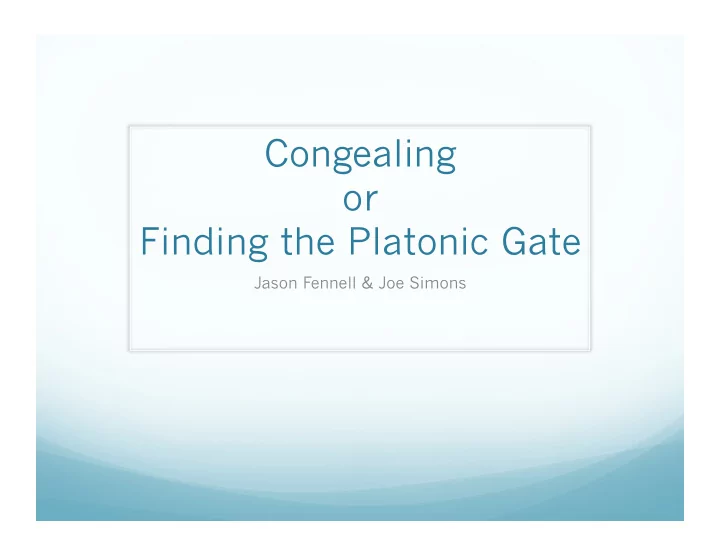

Congealing or Finding the Platonic Gate Jason Fennell & Joe Simons
Outline Sketching as a whole Gate level recognition Our solution: Congealing Motivation Algorithm Results Future work
Sketching vs. Design Sketching is fast and intuitive But there is no automated verification or simulation for sketches Putting a sketch into a design program is tedious Solution: Make a computer do it!
But Sketch Recognition is HARD!
Sketch Recognition Subtasks Symbol Recognition Stroke Fragmentation NAND Stroke Grouping
Sketch Recognition Subtasks Symbol Recognition Stroke Fragmentation NAND Stroke Grouping
Congealing Based on Learning from One Example Through Shared Densities on Transforms Individual instances of gates vary widely We want to create a “platonic gate” to do recognition against
Congealing a a � a a a a a The platonic a a � Instances of a
Congealing Want a computer to be able to do find platonic images automatically Assume that there is some transformation from the platonic image to any gate you draw Given a set of gates, find the inverse of these transformations We assume transforms are affine Scale Shift Shear Rotate
Training Want to minimize the summed pixel-wise entropy Average image Metric Binary entropy function
Training 1. Apply affine transform to an individual image 2. If the transformation decreases the total entropy, keep it 3. Repeat 1 and 2 for each image and possible affine transform 4. Repeat 1-3 until improvement stops
Training Results
Training Results
Classification Congeal candidate image against a sequence of average images This creates a version of the candidate image in platonic space Use a simple distance-based classifier on images in platonic space.
Future Work Create a generic function that maps from affine transforms to total entropy Will allow us to use a variety of numerical methods Testing of the classifier with several metrics Recognition of sub-parts of gates to aid in grouping stage of sketch recognition
Questions?
Recommend
More recommend